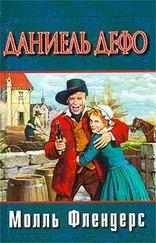Даниэль Дефо - History of the Plague in London
Здесь есть возможность читать онлайн «Даниэль Дефо - History of the Plague in London» весь текст электронной книги совершенно бесплатно (целиком полную версию без сокращений). В некоторых случаях можно слушать аудио, скачать через торрент в формате fb2 и присутствует краткое содержание. Год выпуска: 2014, Издательство: epubBooks Classics, Жанр: Историческая проза, на английском языке. Описание произведения, (предисловие) а так же отзывы посетителей доступны на портале библиотеки ЛибКат.
- Название:History of the Plague in London
- Автор:
- Издательство:epubBooks Classics
- Жанр:
- Год:2014
- ISBN:нет данных
- Рейтинг книги:4 / 5. Голосов: 1
-
Избранное:Добавить в избранное
- Отзывы:
-
Ваша оценка:
- 80
- 1
- 2
- 3
- 4
- 5
History of the Plague in London: краткое содержание, описание и аннотация
Предлагаем к чтению аннотацию, описание, краткое содержание или предисловие (зависит от того, что написал сам автор книги «History of the Plague in London»). Если вы не нашли необходимую информацию о книге — напишите в комментариях, мы постараемся отыскать её.
History of the Plague in London — читать онлайн бесплатно полную книгу (весь текст) целиком
Ниже представлен текст книги, разбитый по страницам. Система сохранения места последней прочитанной страницы, позволяет с удобством читать онлайн бесплатно книгу «History of the Plague in London», без необходимости каждый раз заново искать на чём Вы остановились. Поставьте закладку, и сможете в любой момент перейти на страницу, на которой закончили чтение.
Интервал:
Закладка:
This was a most grievous and afflicting thing to me, who saw it all from my own windows; for all this while the poor afflicted man was, as I observed it, even then in the utmost agony of pain, having, as they said, two swellings upon him, which could not be brought to break or to suppurate; but by laying strong caustics on them the surgeons had, it seems, hopes to break them, which caustics were then upon him, burning his flesh as with a hot iron. I cannot say what became of this poor man, but I think he continued roving about in that manner till he fell down and died.
No wonder the aspect of the city itself was frightful. The usual concourse of the people in the streets, and which used to be supplied from our end of the town, was abated. The Exchange was not kept shut, indeed, but it was no more frequented. The fires were lost: they had been almost extinguished for some days by a very smart and hasty rain. But that was not all. Some of the physicians insisted that they were not only no benefit, but injurious to the health of the people. This they made a loud clamor about, and complained to the lord mayor about it. On the other hand, others of the same faculty, and eminent too, opposed them, and gave their reasons why the fires were and must be useful to assuage the violence of the distemper. I cannot give a full account of their arguments on both sides; only this I remember, that they caviled very much with one another. Some were for fires, but that they must be made of wood and not coal, and of particular sorts of wood too, such as fir, in particular, or cedar, because of the strong effluvia of turpentine; others were for coal and not wood, because of the sulphur and bitumen; and others were neither for one or other. Upon the whole, the lord mayor ordered no more fires, and especially on this account, namely, that the plague was so fierce that they saw evidently it defied all means, and rather seemed to increase than decrease upon any application to check and abate it; and yet this amazement of the magistrates proceeded rather from want of being able to apply any means successfully than from any unwillingness either to expose themselves or undertake the care and weight of business; for, to do them justice, they neither spared their pains nor their persons. But nothing answered. The infection raged, and the people were now terrified to the last degree, so that, as I may say, they gave themselves up, and, as I mentioned above, abandoned themselves to their despair.
But let me observe here, that when I say the people abandoned themselves to despair, I do not mean to what men call a religious despair, or a despair of their eternal state; but I mean a despair of their being able to escape the infection, or to outlive the plague, which they saw was so raging, and so irresistible in its force, that indeed few people that were touched with it in its height, about August and September, escaped; and, which is very particular, contrary to its ordinary operation in June and July and the beginning of August, when, as I have observed, many were infected, and continued so many days, and then went off, after having had the poison in their blood a long time. But now, on the contrary, most of the people who were taken during the last two weeks in August, and in the first three weeks in September, generally died in two or three days at the farthest, and many the very same day they were taken. Whether the dog days [244] Various periods are assigned for the duration of the dog days: perhaps July 3 to Aug. 11 is that most commonly accepted. The dog days were so called because they coincided with the heliacal rising of Sirius or Canicula (the little dog).
(as our astrologers pretended to express themselves, the influence of the Dog Star) had that malignant effect, or all those who had the seeds of infection before in them brought it up to a maturity at that time altogether, I know not; but this was the time when it was reported that above three thousand people died in one night; and they that would have us believe they more critically observed it pretend to say that they all died within the space of two hours, viz., between the hours of one and three in the morning.
As to the suddenness of people dying at this time, more than before, there were innumerable instances of it, and I could name several in my neighborhood. One family without the bars, and not far from me, were all seemingly well on the Monday, being ten in family. That evening one maid and one apprentice were taken ill, and died the next morning, when the other apprentice and two children were touched, whereof one died the same evening and the other two on Wednesday. In a word, by Saturday at noon the master, mistress, four children, and four servants were all gone, and the house left entirely empty, except an ancient woman, who came to take charge of the goods for the master of the family's brother, who lived not far off, and who had not been sick.
Many houses were then left desolate, all the people being carried away dead; and especially in an alley farther on the same side beyond the bars, going in at the sign of Moses and Aaron. [245] An inn with this title (and probably a picture of the brothers) painted on its signboard.
There were several houses together, which they said had not one person left alive in them; and some that died last in several of those houses were left a little too long before they were fetched out to be buried, the reason of which was not, as some have written very untruly, that the living were not sufficient to bury the dead, but that the mortality was so great in the yard or alley that there was nobody left to give notice to the buriers or sextons that there were any dead bodies there to be buried. It was said, how true I know not, that some of those bodies were so corrupted and so rotten, that it was with difficulty they were carried; and, as the carts could not come any nearer than to the alley gate in the High Street, it was so much the more difficult to bring them along. But I am not certain how many bodies were then left: I am sure that ordinarily it was not so.
As I have mentioned how the people were brought into a condition to despair of life, and abandoned themselves, so this very thing had a strange effect among us for three or four weeks; that is, it made them bold and venturous. They were no more shy of one another, or restrained within doors, but went anywhere and everywhere, and began to converse. One would say to another, "I do not ask you how you are, or say how I am. It is certain we shall all go: so 'tis no matter who is sick or who is sound." And so they ran desperately into any place or company.
As it brought the people into public company, so it was surprising how it brought them to crowd into the churches. They inquired no more into who [246] Whom.
they sat near to or far from, what offensive smells they met with, or what condition the people seemed to be in; but, looking upon themselves all as so many dead corpses, they came to the churches without the least caution, and crowded together as if their lives were of no consequence compared to the work which they came about there. Indeed, the zeal which they showed in coming, and the earnestness and affection they showed in their attention to what they heard, made it manifest what a value people would all put upon the worship of God if they thought every day they attended at the church that it would be their last. Nor was it without other strange effects, for it took away all manner of prejudice at, or scruple about, the person whom they found in the pulpit when they came to the churches. It cannot be doubted but that many of the ministers of the parish churches were cut off among others in so common and dreadful a calamity; and others had not courage enough to stand it, but removed into the country as they found means for escape. As then some parish churches were quite vacant and forsaken, the people made no scruple of desiring such dissenters as had been a few years before deprived of their livings, by virtue of an act of Parliament called the "Act of Uniformity," [247] The Act of Uniformity was passed in 1661. It required all municipal officers and all ministers to take the communion according to the ritual of the Church of England, and to sign a document declaring that arms must never be borne against the King. For refusing obedience to this tyrannical measure, some two thousand Presbyterian ministers were deprived of their livings.
to preach in the churches, nor did the church ministers in that case make any difficulty in accepting their assistance; so that many of those whom they called silent ministers had their mouths opened on this occasion, and preached publicly to the people.
Интервал:
Закладка:
Похожие книги на «History of the Plague in London»
Представляем Вашему вниманию похожие книги на «History of the Plague in London» списком для выбора. Мы отобрали схожую по названию и смыслу литературу в надежде предоставить читателям больше вариантов отыскать новые, интересные, ещё непрочитанные произведения.
Обсуждение, отзывы о книге «History of the Plague in London» и просто собственные мнения читателей. Оставьте ваши комментарии, напишите, что Вы думаете о произведении, его смысле или главных героях. Укажите что конкретно понравилось, а что нет, и почему Вы так считаете.












